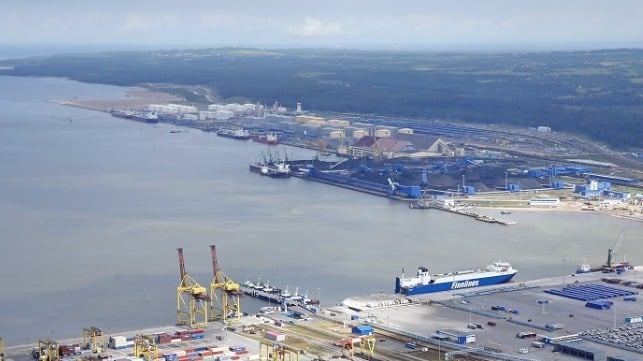After Sanctions and Ukrainian Attacks, Russian Oil Flows Shift

Ukrainian strikes on Russian energy infrastructure are having complex effects on the nation's oil exports. Attacks on Russian refineries have sharply cut down domestic processing, freeing up more crude for export. At the same time, strikes on the Druzhba pipeline have hit cross-border exports to Russia's remaining customers in Hungary and Slovakia, temporarily cutting off export flows to Central Europe - and further raising the volume that needs to go to market by sea.
Ukraine's refinery attacks have been picking up speed this month, and in recent weeks it has hit about 10 Russian oil refineries, temporarily taking out about 17 percent of all Russian refining capacity (about 1.1 million barrels per day). Fuel shortages, price hikes and regional schemes for fuel rationing have been reported within Russia, and the Kremlin has banned gasoline exports in an attempt to keep refined fuel supplies higher at home.
The attacks are likely enabled by two new long-range weapons, the Batyar drone and the "Flamingo" cruise missile. Drones very much like the Batyar were photographed during Sunday's attack on the Novatek gas processing plant at Ust-Luga, a key Russian energy port near St. Petersburg. Ukraine's SBU intelligence service has claimed responsibility for the strike, calling it an example of "drone sanctions" on Russian energy.
Amidst the disruption, Russia's seaborne crude shipments fell to about 320,000 barrels per day in mid-August, according to Bloomberg - even though Reuters reports that Russia is trying to increase seaborne crude oil exports by 200,000 bpd, likely in search of a market for volumes that would normally be refined domestically or sold via the Druzhba pipeline. Reduced loadings at Ust-Luga accounted for most of the drop, and it is possible that Ukraine's strikes on the Druzhba pumping stations also affected deliveries to the loading port (via the northern branch of the pipeline).
A second development could be discouraging seaborne export loadings at Russia's Baltic terminals. India, the second-biggest buyer of Russian crude, is buying about 500,000 barrels per day less than it was in June - likely because of EU sanctions on a key Indian refiner, as well as the punishing 25% extra tariff that the Trump administration has imposed on India over its Russian oil imports. However, China - the leading importer of Russian oil - has increased buying of these discounted barrels at the same time that India's imports have fallen. According to Kpler, Chinese refiners have picked up 15 extra cargoes of oil for October and November delivery, all from the western Russian ports that ordinarily ship to India.
